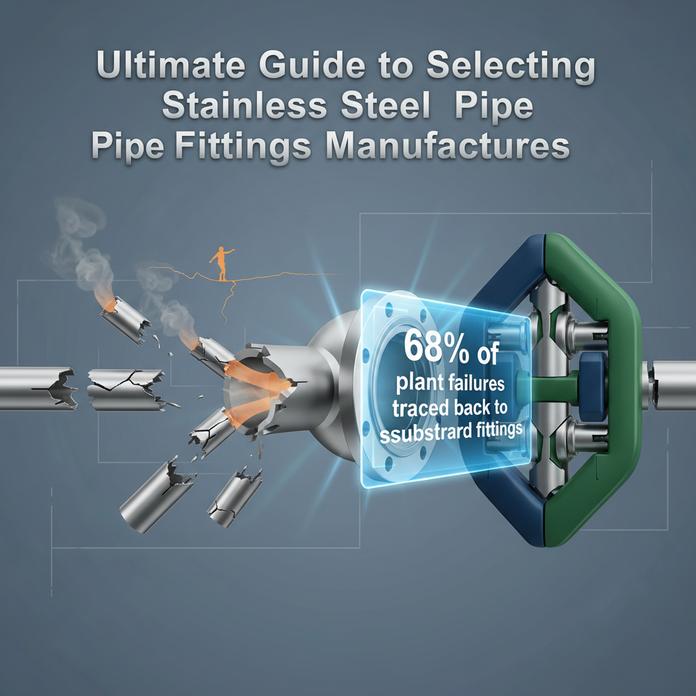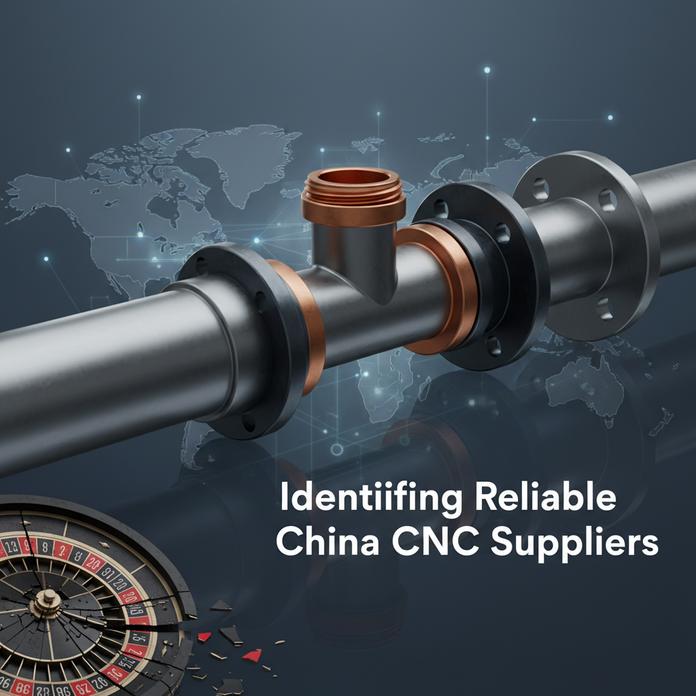Types of Hex Nuts and Their Applications in Industrial Manufacturing
Hex nuts are one of the most common and essential fasteners used in industries around the world. From pipe fittings in chemical plants to complex machinery assembled with CNC turned parts, the humble hex nut plays a crucial role in ensuring reliability, safety, and efficiency. While they might seem simple at first glance, different types of hex nuts are designed for very specific applications, and choosing the right one can make all the difference in both industrial and commercial projects.
In this guide, we’ll explore the various types of hex nuts, their applications, manufacturing processes, and how they integrate with CNC turned parts and pipe fittings in modern industrial setups.
Introduction – Why Hex Nuts Matter in Industrial Applications
A hex nut, by definition, is a six-sided fastener that works with a bolt or threaded rod to secure two or more components together. The six-sided design is widely adopted because it allows tools to grip the nut from multiple angles, making assembly and maintenance easier in tight spaces.
Industries such as construction, oil and gas, water treatment, automotive, and heavy machinery rely heavily on high-quality hex nuts. Improperly chosen nuts can result in equipment failure, leaks, or downtime, which is why precision in manufacturing and material selection is critical.
Many manufacturers today, especially those based in China and supplying globally, combine traditional production methods with CNC turning technology to produce hex nuts that meet international standards such as DIN, ISO, and ASTM. This ensures consistent quality for both standard and custom applications.
Standard Hex Nuts
Standard hex nuts are the most commonly used type and are typically manufactured according to ISO 4032 or DIN 934 standards. They are widely used in general machinery, structural applications, and most pipe fittings.
Key features:
-
Six-sided shape for easy wrenching
-
Available in carbon steel, stainless steel, or alloy steel
-
Can be coated or plated for corrosion resistance
Standard hex nuts are ideal for general-purpose fastening and are often paired with standard bolts in assemblies where extreme torque or high vibration resistance is not required.
Heavy Hex Nuts
Heavy hex nuts are thicker and slightly larger across flats than standard nuts, making them suitable for high-stress applications. They are commonly used in pressure vessels, structural steel connections, and machinery where higher torque and strength are needed.
Applications include:
-
Hydraulic systems with high-pressure pipe fittings
-
Heavy-duty machinery assembly
-
Industrial equipment that undergoes vibration or dynamic load
Heavy hex nuts are often used together with high-strength bolts, many of which are manufactured using CNC turned parts to ensure precise thread engagement and tight tolerances.
Lock Nuts
Lock nuts are designed to resist loosening caused by vibration or movement. There are several types, including:
-
Nylon insert lock nuts – Nylon ring inside the nut provides resistance to turning
-
Prevailing torque nuts – Designed to maintain friction against the bolt threads
Lock nuts are critical in applications such as pipe fittings in hydraulic systems, automotive machinery, and vibrating equipment. They ensure that connections remain secure over long periods of operation without frequent maintenance.
Flange Hex Nuts
Flange hex nuts include a built-in washer-like flange at the base, which distributes load over a larger surface area. This reduces the need for a separate washer and is particularly useful in high-pressure applications.
Common uses:
-
Automotive assemblies
-
Heavy machinery
-
Pipe fittings and fluid handling equipment
The flange ensures better load distribution and prevents damage to connected surfaces, making these nuts ideal for CNC machined assemblies where precision and reliability are critical.
Thin Hex Nuts (Jam Nuts)
Thin hex nuts, also known as jam nuts, are designed for applications where space is limited or for locking another nut in place. They are particularly useful in CNC turned part assemblies where a secondary nut is required to secure a critical connection without adding excessive bulk.
Thin hex nuts are often used:
-
In adjustable components
-
For securing pipe fitting connections
-
In small-scale machinery where precision is necessary
Custom CNC Machined Hex Nuts
For specialized applications, standard nuts may not suffice. Custom CNC machined hex nuts are often required for:
-
Unique thread specifications
-
Exotic or high-performance materials (316 stainless steel, titanium, duplex alloys)
-
Integration with precision pipe fittings or hydraulic components
CNC turning allows manufacturers to produce hex nuts with precise tolerances, smooth surfaces, and consistent thread quality, which is especially important in industries where safety and reliability are paramount.
Material Considerations for Hex Nuts
The material used for a hex nut can affect its performance dramatically. Common materials include:
-
Carbon steel – Strong and cost-effective
-
Stainless steel (304 / 316) – Corrosion-resistant, suitable for fluid systems
-
Alloy steel – High-strength applications
-
Brass / bronze – Non-magnetic, good for fluid fittings
-
Exotic alloys – For extreme temperatures, pressure, or corrosive environments
Surface finishes such as zinc plating, black oxide, electroless nickel, or passivation improve corrosion resistance and longevity, particularly in outdoor, marine, or chemical process applications.
How to Choose the Right Hex Nut
Choosing the correct hex nut involves considering:
-
Thread type and size – Metric, UNC, UNF, BSP, or NPT for pipe fittings
-
Material strength – Based on load requirements
-
Environmental conditions – Corrosion, temperature, and chemical exposure
-
Application type – Vibration, dynamic load, or standard fastening
For specialized applications, working with a supplier capable of producing custom CNC turned parts ensures the nut meets the exact performance specifications required.
Conclusion
Hex nuts may appear simple, but their design, material selection, and cnc turning process are critical for the performance and safety of industrial assemblies. From standard hex nuts for general applications to heavy hex nuts and custom CNC machined components for specialized pipe fittings and machinery, choosing the right nut ensures reliability, durability, and precision.
In today’s competitive manufacturing environment, sourcing high-quality hex nuts from experienced suppliers—particularly those who can provide cnc turned parts and standard fasteners—is the key to maintaining strong and reliable industrial connectioins.





